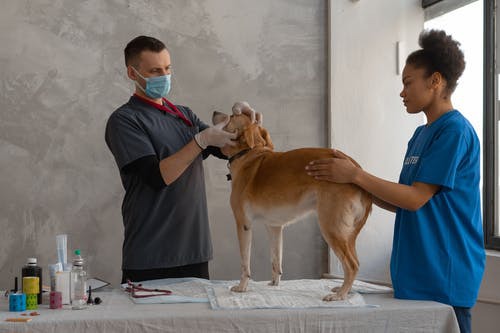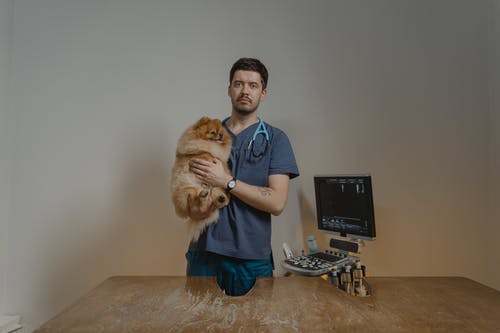When it comes to the health and well-being of your cherished four-legged friends, a veterinary diagnostic lab assumes a crucial role. These laboratories, synonymous with the heart of a veterinary practice, conduct varying tests that help in diagnosing diverse diseases and health conditions in pets. They serve as a robust pillar in numerous facets of pet healthcare, from routine check-ups and vaccinations to intricate surgeries and everything in between.
The Concept of a Veterinary Diagnostic Lab
At the onset, let’s delve deeper into the concept of a veterinary diagnostic lab. Essentially, it is a specialized facility nestled within a veterinary clinic or hospital where a collection of diagnostic tests are performed on samples extracted from pets. These tests have an extensive range, from fairly common blood tests and urine tests to more complex inspections like the dog xray.
At its core, these labs strive to lend a helping hand in diagnosing diseases, tracking the progress of treatment, conducting preliminary evaluations before surgeries, and ensuring the overall good health of pets.
- Veterinary Lab Tests: These are comprehensive tests that include routine blood and urine tests, stool tests for spotting parasites, allergy tests, and even specialized tests for conditions including, but not limited to diabetes and liver disease.
- Veterinary Diagnostic Services: They encompass a plethora of services like radiology, ultrasound, endoscopy, and surgical biopsies, which hold paramount importance in shedding light on various afflictions tormenting pets.
- Pet Health Laboratory: Describing the overall structure of a veterinary diagnostic lab, it caters to every single dimension of pet health, including routine check-ups, vaccination sessions, deworming procedures, dental health checks, spaying and neutering, and many more.
Relevance of Pet Parasite Prevention
Parasites have the potential to spell serious danger to the health of your pets. These pesky nuisances can give rise to a medley of symptoms, among them including weight loss, constant cycles of diarrhea, development of anemia, and persistent skin irritation. Thus, the prevention of pet parasites has immense significance. To follow this link of reasoning further, let’s investigate the part veterinary diagnostic labs play in this aspect.
- Pet Parasite Treatment: Their critical role in accurately diagnosing parasites indisputably assists veterinarians in recommending an appropriate course of treatment.
- Pet Parasite Symptoms: By proficiently recognizing the symptoms, which could range from weight loss, increased appetite devoid of weight gain, and poor quality of coat, labs can diagnose which type of parasites are to be blamed for these.
- Diagnosing Pet Parasites: Parasites are usually diagnosed courtesy of the stool samples tested in the lab. These labs can also help identify what type of parasite is wreaking havoc, whether they be fleas, ticks, heartworms, or internal parasites.
- Flea and Tick Prevention in Pets: They also have a hand in preventing the emergence of flea and tick infestations by routinely screening for them samples submitted for tests and helping establish the correct prevention strategies.
- Heartworm Prevention in Pets: Preventing the invasion of heartworms into the body of pets counts as another pivotal role where diagnostic labs offer their expertise. The diagnosis is primarily made through antigen tests run in labs, facilitating the detection of this parasite.
The Perks of Delving into Veterinary Dentistry
A central focal point of pet healthcare that finds attention in a veterinary diagnostic lab hovers around the prospect of veterinary dentistry. The oral health of a pet holds a distinct position, and it influences their all-round well-being.
- Dental Care for Pets: Appropriate dental care aids in fending off diseases such as periodontal disease, gingivitis, and other oral infections that could potentially bear serious repercussions on the health of a pet.
- Pet Oral Health: Diagnostic labs contribute to maintaining a pet’s oral health by carrying out detailed dental tests and cleanings and even imparting knowledge to pet parents about maintaining optimal oral hygiene.
- Veterinary Dental Procedures: They can include a broad spectrum from teeth cleaning, pulling out an affected tooth, and root canal treatments to dental surgeries. These procedures are usually executed within the confines of a veterinary clinic or hospital, but all begin at the laboratory – from diagnosing the issue to identifying the appropriate solution.
- Pet Dental Cleaning: Regular cleaning of a pet’s dental structure is strongly recommended for every pet. It assists in eliminating plaque and tartar build-up and helps fend off oral diseases.
- Pet Dental Diseases: Periodontal disease is a common oral disorder affecting pets. Veterinary labs play an invaluable role in diagnosing and treating this disease.
- Causes of Pet Dental Problems: While some pet dental problems can stem from genetics, many sprout from the lack of proper oral hygiene. Regular check-ups at the lab can help in spotting such problems before they escalate into severe issues.
- Pet Dental Surgery: In critical conditions, dental surgery could be necessitated. Conducting diagnostic tests within the lab preceding the surgery is vital to assess the pet’s health condition deemed fit for anesthesia.
The Extra Mile in Veterinary Laboratory Services
Apart from common diagnostic services, multiple veterinary diagnostic labs offer additional services, like veterinary pathology and veterinary microbiology.
- Veterinary Pathology: This is a critical domain in veterinary diagnostics, encompassing the study of disease processes in pets using laboratory tests.
- Veterinary Microbiology Laboratory: In this setup, laboratory professionals work towards identifying infectious agents such as bacteria, viruses, fungi, and parasites. They provide indispensable information to vets about the infectious organism and potential sensitivity to specified drugs.
Final Words
To distill it, the function of a veterinary diagnostic lab in the realm of pet care is both multifaceted and indispensable. They undertake duties ranging from running ordinary health checks to diagnosing complex diseases and supervising treatment advancements. These labs are a critical entity required in ensuring pets remain in the best of health.
So, the next time you accompany your furry companion to the vet, bear in mind the critical role played by these labs in maintaining your pet’s health and overall well-being. It’s their unassuming, behind-the-scenes work that provides invaluable insights for the betterment of your pet’s health.









